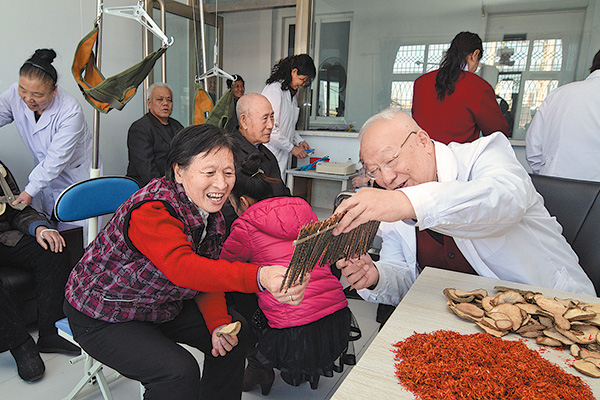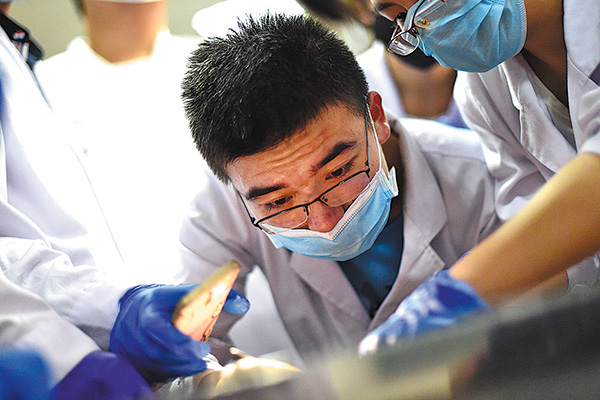During the past week, a number of ministries, including the Ministry of Civil Affairs and the National Health and Family Planning Commission, have answered concerns from the public and introduced policies on a wide variety of issues. These include training for general practitioners and quality improvement.
Progress seen in platforms to boost services for elderly

Elderly care services have seen “notable progress” after a nationwide program in 2017 during which more than 40,000 nursing homes were requested to “make improvements”, the minister of civil affairs said.
Huang Shuxian, minister of civil affairs, said at a news conference held by the State Council Information Office on Feb 1 that several moves, including further opening up of the elderly care market to private capital, have also contributed to the progress.
He said these moves will be continued to meet the needs and demands from elderly citizens.
Statistics from the ministry show the number of private nursing homes in China saw a year-on-year increase of 7.8 percent, and elderly care facilities based in residential communities increased by 41.3 percent.
Gao Xiaobing, vice-minister of civil affairs, said inspections in 2017 found and rectified almost 200,000 issues in nursing homes nationwide and the effect was obvious, with accidents dropping by almost a quarter in 2017.
To further improve the quality of workers engaged in the industry, Gao called for a pay raise and more respect for the profession.
Goal aims to train 500, 000 general practitioners

China aims to train 500,000 more general practitioners by 2030, a senior official said on Jan 25.
At present, China has 209,000 general practitioners, but aims to enable every 10,000 residents to have access to five general practitioners by 2030, said Zeng Yixin, deputy head of the National Health and Family Planning Commission, at a news conference held by the State Council’s Information Office.
